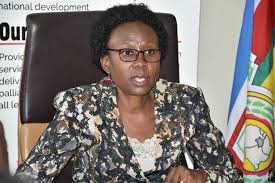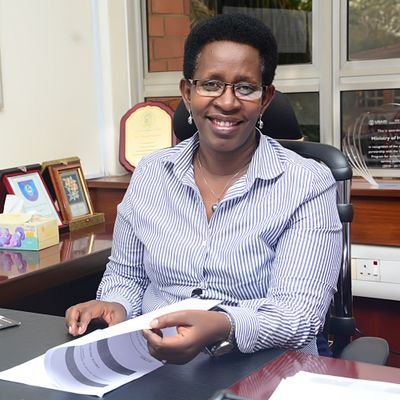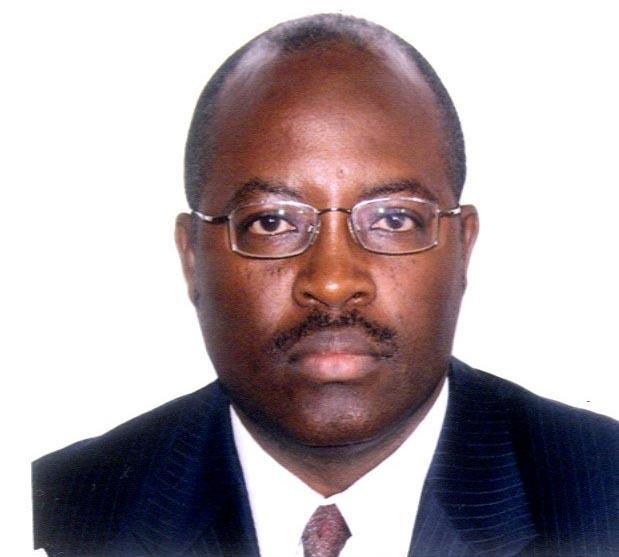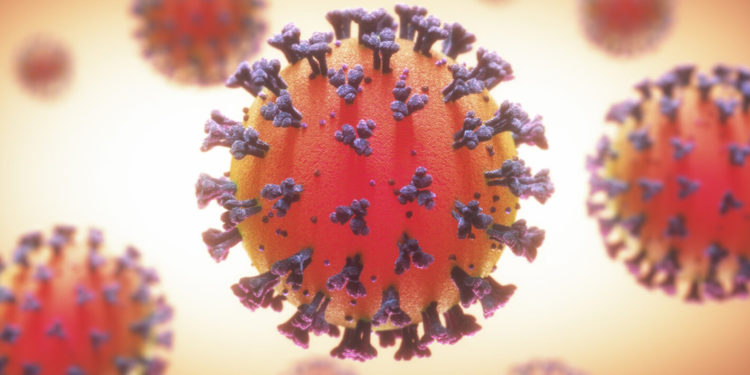By: Prof. Anthony K. Mbonye
Before Uganda reported the first case of COVID-19 on the 21st of March 2020, the government implemented early mitigation measures including closure of schools and public gatherings that were instituted on the 18th of March, 2020. Thereafter, additional mitigation measures were instituted including the suspension of all public and private transport, closure of the Ugandan airspace, and a curfew that banned all movement between the hours of 7:00 pm and 6:30 am.
This initial response led by the President was timely and it greatly curbed the spread of the COVID-19 pandemic. Few sporadic cases of truck drivers were reported originating from neighbouring countries, Kenya, South Sudan, Tanzania and the Democratic Republic of Congo.
Initially the confusion of mishandling returnees at Entebbe International Airport had been reported, where one of the senior administrators at the Ministry of Health claimed there was no money to quarantine the returnees. Uganda nearly lost the war on COVID-19 at this point. What helped was that not many planes landed at the airport and this saved what would have been a grave situation.
Hurriedly, the government assembled a national task force chaired by the Prime Minister and a scientific committee was also assembled by the Health Minister. Both committees did not have eminent people who had training in infectious diseases nor experience in managing epidemics. Instead the committees were staffed by acquittances and friends of some sort of kind. Uganda has had several devastating epidemics of Ebola Hemorrhagic Fevers, Yellow Fever and Cholera, which are more infectious and highly lethal. Experienced doctors like Prof. Francis Omaswa, Dr. Sam Okware, Dr. Sam Zaramba, Prof. Anthony Mbonye, Dr. Jacinto Amandua, Dr. Jackson Amone, Dr. Miriam Nanyunja, Dr. Kenya-Mugisha, Dr. Benard Opar, Dr. Godfrey Bwire, Dr. Jenipher Wanyana, were not called to give a hand. Was this deliberate or an oversight?
Most unfortunate of all this was that the Director General of Health Services, who is supposed to lead the technical team in such an epidemic, was relegated to the back bench. Instead the Minister of Health and her Permanent Secretary saw it as an opportunity to appear on television cameras, and they did all sorts of menial things including advertising how to use masks, a task usually done by junior health educators.

The scientific team has claimed and convinced the President of Uganda, who has subsequently announced to the nation that Uganda will soon surprise the world with a vaccine, a new drug to treat COVID-19 and diagnostic tests. The team of scientists have accordingly been allocated billions of shillings. Anyone who knows the infrastructure and scientific excellence that is required of vaccine and drug development would simply know that this was a hoax aimed at siphoning money under the pretext of fighting COVID-19.
For once Ugandans should stand up and one day demand for accountability for these billions of shillings in the hands of these masqueraders.
Ugandans have many surprises though, some members of the scientific committee will one day claim that they have developed a vaccine.
I also recommend that the Ministers of Health, the Permanent Secretary and all members of the scientific committee should participate in the first phase of that vaccine trial. If they don’t, no Uganda should volunteer.

By now, many Ugandans are wallowing in the effects of the prolonged lockdown. For example how many jobs have been lost? How many businesses have been closed? What has been the overall impact on the economy? And how many people have died due to poor access to health services?
Does Uganda have these statistics?
Whereas the initial lockdown was necessary, one month was enough to identify the source of COVID-19 cases. After identifying that these were truck drivers, intense surveillance, testing and isolation at border points should have been intensified while the lockdown was lifted. But this didn’t happen and this has partly led to escalation of community transmission that could end up in a disaster for Uganda.
With a prolonged lockdown, directing focus and prioritization of health systems to fight COVID-19 may have had an impact on access to non-COVID-19 diseases. We therefore applied an age-based COVID-19 mortality data from China to the population structures of Uganda and non-African countries with previously established outbreaks, comparing theoretical mortality and disability-adjusted life years (DALYs) lost. We then predicted the impact of possible scenarios of the COVID-19 public health response on morbidity and mortality for HIV/AIDS, malaria and maternal health in Uganda.
The results are very astonishing, based on the population age structure alone. Uganda is predicted to have a relatively low COVID-19 burden compared to an equivalent transmission in the comparison countries, with 12% of the mortality and 19% of the lost DALYs predicted for an equivalent transmission in Italy.

In contrast, scenarios of the impact of the public health response in Uganda on malaria and HIV/AIDS predict additional disease burden outweighing that predicted from extensive SARS-CoV-2 transmission.
Emerging disease data from Uganda suggests that such deterioration already may be occurring. The results predict a relatively low COVID-19 impact on Uganda due to its young population, with a high risk of negative impact on non-COVID-19 disease burden from a prolonged lockdown response. This may reverse hard-won gains in addressing fundamental vulnerabilities in women and children’s health in Uganda. (Published in the American Journal of Tropical Medicine and Hygiene, 23rd July 2020).
For the current enraging community transmission, there is need to intensify surveillance, COVID-19 testing, isolation and partial lockdown of hotspots. There is no need for another total lockdown of the country. The airport and borders should be opened and rapid testing and self-isolation followed through. But these measures may have to be implemented by a totally new team since the current one is embroiled in corruption and mismanagement.
Conclusively, Uganda’s COVID-19 management has not been guided by evidence and scientific analyses. It has rather been adhoc and based on fear and imagination. The community transmission and deaths being currently observed is out of this mismanagement and may be a disaster for the country.

Anthony K Mbonye (PhD, FRCP) is currently a Professor at the College of Health Sciences, Makerere University, and formerly Director General of Health Services, Ministry of Health-Uganda.










Interesting article.